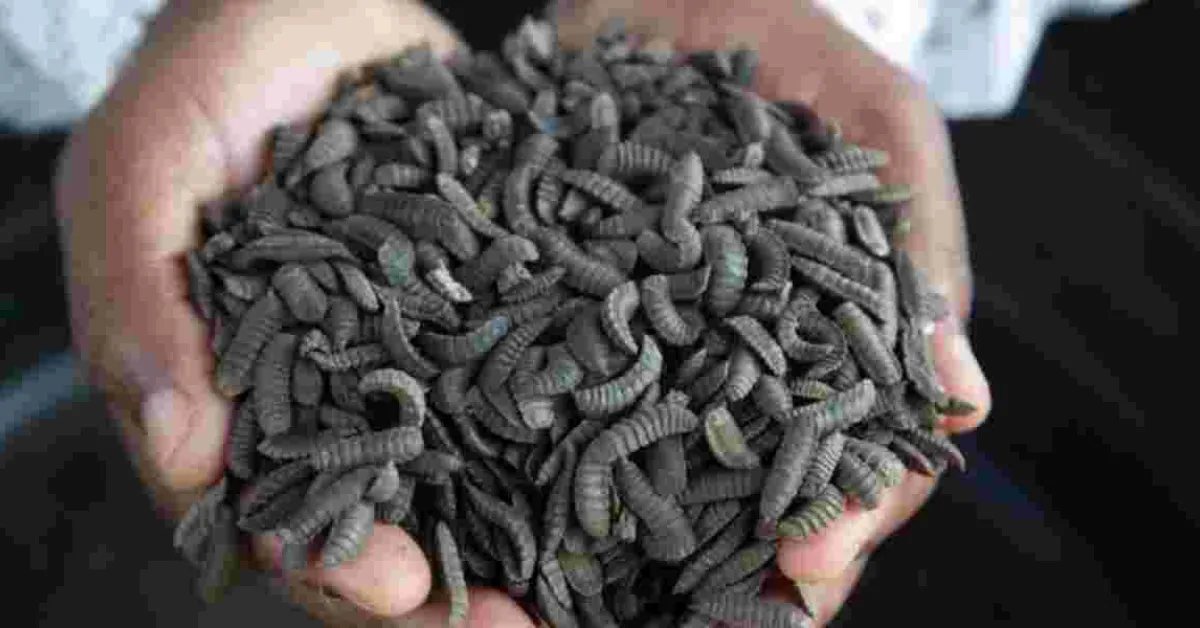How Zimbabwean Farmers Are Surviving Drought with Maggots

In the Nyangambe region of southeastern Zimbabwe, the introduction of maggot farming has garnered attention for helping local farmers combat challenges posed by drought and crop failures.
Initially greeted with scepticism due to health concerns associated with flies, this innovative method is increasingly embraced for its economic and environmental advantages. Mari Choumumba, a 54-year-old farmer, had participated in a community meeting organized by the United States Agency for International Development (USAID) and the Zimbabwean government, expecting to hear about food aid solutions. Instead, she and her fellow farmers were introduced to the practice of breeding black soldier fly maggots for use as livestock feed and manure.
Despite initial fears about working with flies, Choumumba and others gradually recognized the value of this approach. One year later, Choumumba successfully manages a maggot breeding pit, converting organic waste into protein-rich feed for her free-range chickens. This transition has significantly lessened her feed expenses, previously accounting for up to 80% of her production costs. By incorporating maggots into her feeding regimen, she and other farmers can reduce costs by approximately 40%, thereby enhancing the sustainability and affordability of poultry farming.
The black soldier fly, originating from tropical South America, has emerged as an important species in this venture. Unlike house flies, black soldier flies do not carry diseases. Their larvae thrive on decaying organic matter, effectively transforming waste into a highly nutritious food source for livestock. This recycling process not only bolsters animal nutrition but also mitigates environmental impacts by reducing greenhouse gas emissions linked to waste decomposition. Professor Robert Musundire of the Chinhoyi University of Technology has played a key role in promoting maggot farming across the region.
His research emphasises that maggot-based feed possesses superior protein content when compared to conventional soy-based options. Despite facing initial resistance, approximately 50% of farmers approached have now adopted this sustainable practice. Maggot farming has been recognized by the Zimbabwean government and international donors as a resilient strategy in response to the dual threats of climate change and economic instability. This initiative is also gaining traction in other African nations, including Uganda, Nigeria, and Kenya, where it alleviates fertilizer shortages and boosts agricultural productivity.
In Zimbabwe, an estimated 1.6 million tons of waste are generated each year, with around 90% deemed recyclable or compostable. The utilization of maggots for organic waste processing presents a viable opportunity to significantly decrease environmental impacts and enhance waste management capabilities. Choumumba says that she harvests up to 15 kilograms of maggots every 21 days, generating 375 kilograms of chicken feed by blending the maggots with drought-resistant crops such as millets, cowpeas, and sunflower seeds. This cost-effective feed not only meets her needs but is also sold to other villagers, thereby improving local food security.
Despite initial apprehensions and social stigma surrounding maggot farming, the tangible benefits have led to wider acceptance and implementation. For farmers like Choumumba, this innovative agriculture method embodies a promising answer to the pressing issues of climate change and economic hardship.














Add new comment